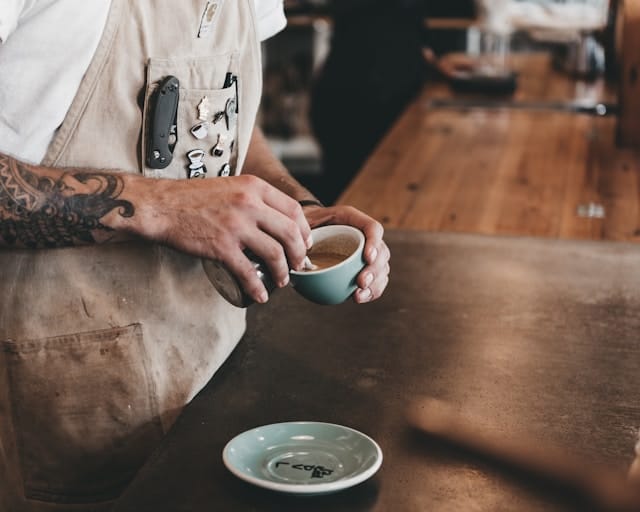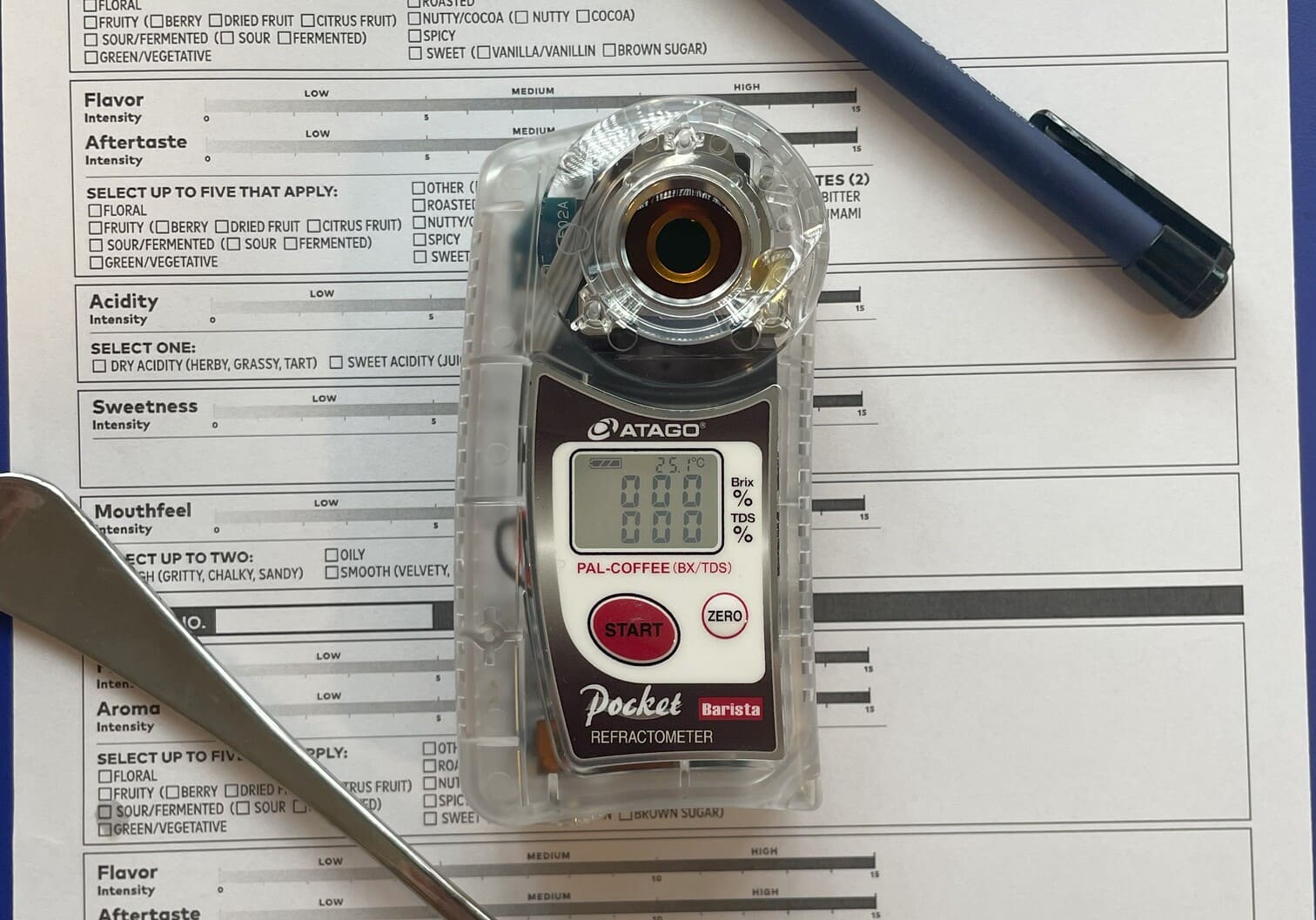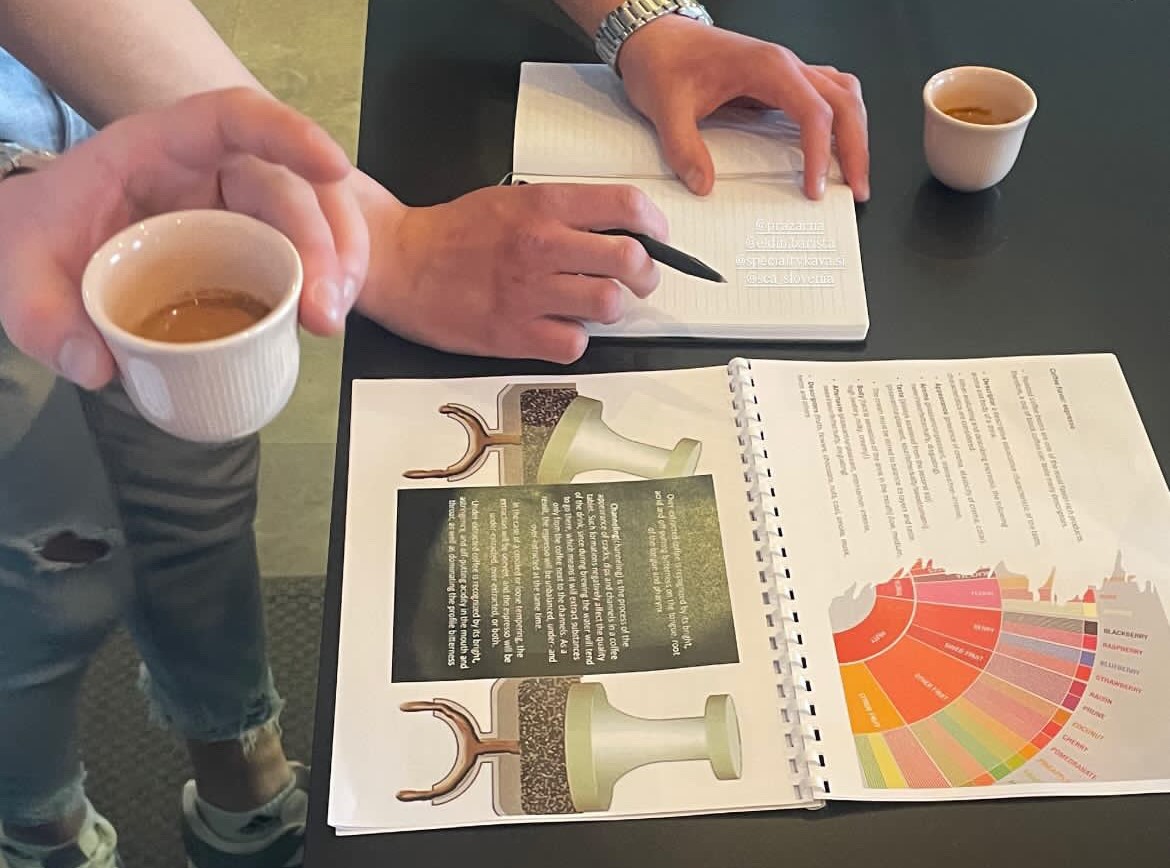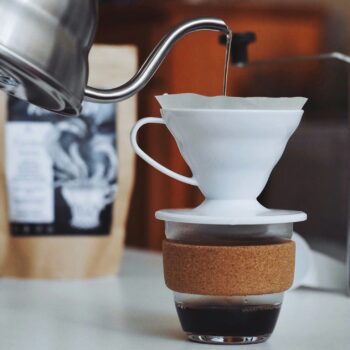ALL POSTS
ALL POSTS
How Much Caffeine in Coffee?
4 min read
Last edit: Jan 9, 2025
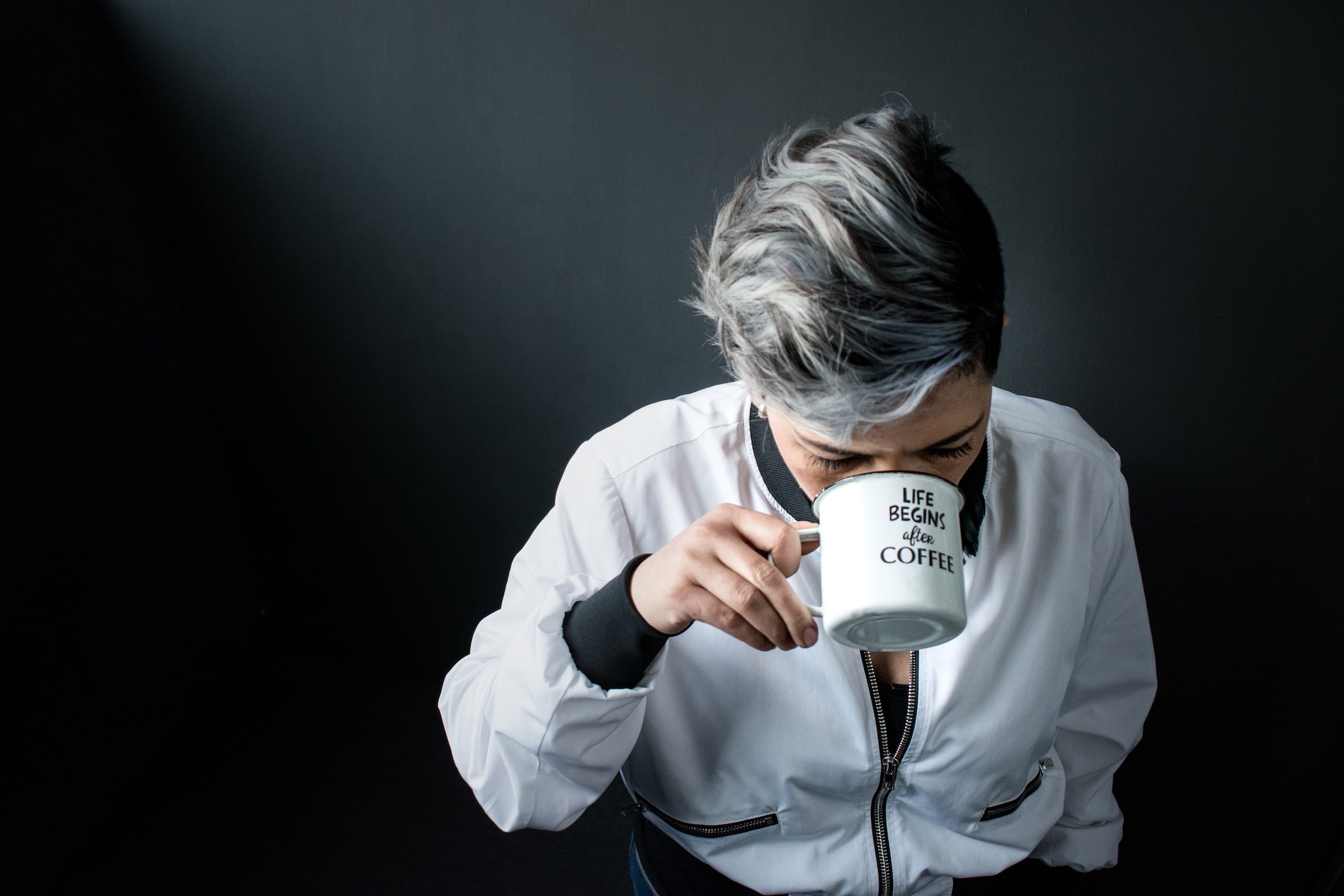
Some people enjoy coffee for its taste and aroma, while others prioritize it as a source of caffeine, which causes the stimulating effect of this beverage. However, all these aspects are interconnected. Now, we will figure out how much caffeine is in coffee, what influences it, how coffee caffeine content affects the taste of coffee, and its impact on us and our health.
Factors influencing caffeine content
Many factors determine how much caffeine is in a cup of coffee, but we will outline the main ones below:
Type of coffee beans and varieties
The first factor affecting coffee caffeine content is the type of coffee beans. Among all varieties, two are most common: Arabica and Robusta. Robusta beans typically contain more caffeine. Therefore, even when selecting coffee beans, we can influence the caffeine content in the drink.
Degree of roasting coffee beans
Another crucial factor for caffeine is the degree of roasting of coffee beans. It’s simple: the longer the beans are roasted, the less caffeine remains. Consequently, a light roast results in a more invigorating drink with a less intense flavor, while a darker roast yields a rich taste with lower caffeine levels.
Type of coffee beverage and serving size
In a cup of coffee, the caffeine content varies depending on the type of beverage. Per milliliter, espresso contains the highest caffeine content. This is due to its low water content and the brewing process, which effectively extracts caffeine from the beans. Typically, a specific amount of coffee grounds is recommended for a particular volume of water, allowing you to adjust caffeine content by varying this ratio.
The amount of caffeine also depends on the drink’s serving size. In general, if you aim to reduce caffeine intake, opt for more diluted beverages, reduce the amount of coffee in a cup, or choose decaffeinated coffee.
How much caffeine in different coffee types
Now, let’s talk about numbers. The same coffee beverage can be prepared differently, resulting in varying caffeine content. However, we will provide average, widely accepted values and demonstrate how much caffeine is in a portion of specific drinks:
Brewed coffee
A standard 240 ml cup of brewed coffee, depending on the type of coffee beans and their roasting, can contain between 95 to 200 milligrams of caffeine.
Espresso
A standard 30 ml shot of espresso contains approximately 63 milligrams of caffeine.
Americano
Essentially, an americano is diluted espresso with water. For a 120 ml serving, the caffeine content can range from 85 to 117 milligrams.
Latte
In a 400 ml latte serving, you can find anywhere from 200 to 360 milligrams of caffeine.
Cappuccino
A 200 ml cappuccino contains about 100 to 136 milligrams of caffeine.
Instant coffee
For one teaspoon of instant coffee, the caffeine content varies from 30 to 90 milligrams, depending on the manufacturer. This is coffee with reduced caffeine content. Typically, after the decaffeination process, it retains approximately 3 milligrams of caffeine.
Decaf coffee
Decaf, short for decaffeinated coffee, is coffee with reduced caffeine content. Typically, a 240 ml cup of decaf coffee contains only about 3 milligrams of caffeine.
Caffeine content in commercial brands
If you prefer coffee from popular commercial brands or coffee shops, it’s essential to know how much caffeine is present in their beverages. Caffeine content can significantly differ based on the brand and type of drink. Such as McDonald’s and Starbucks offer a wide range of options with different caffeine content. You can inquire at the counter before placing your order or check their websites or menus.
How much caffeine can you consume per day?
For most adults, 400 milligrams of caffeine is considered a safe daily dose without pronounced side effects or consequences. This is equivalent to 3-5 cups of coffee per day. Pregnant women, nursing mothers, and individuals with certain medical conditions should consult a doctor to determine their safe daily caffeine intake. Since caffeine tolerance varies from person to person, it’s advisable to pay attention to your own well-being and, if necessary, limit caffeine consumption and set your own caffeine limit per day. Exceeding a comfortable caffeine intake may lead to unpleasant side effects such as insomnia, nervousness, and tachycardia.
Every individual reacts differently to caffeine, and some people can tolerate large doses without visible consequences. However, for those who regularly consume significant amounts of caffeine, it’s recommended to maintain reasonable limits and monitor their physical and emotional well-being. Long-term adverse effects of caffeine abuse can lead to more severe problems, such as caffeine addiction, systemic insomnia, high blood pressure, stomach issues, and negative impact on bone health.
The impact of caffeine on taste
Interestingly, caffeine can directly affect how we perceive the taste of a beverage. Studies have shown that caffeine reduces the ability to perceive sweet taste.
As a result, coffee may appear less sweet to you than it actually is, both during and after consumption. If you crave something sweet after a cup of coffee, this is likely the reason!
The placebo effect
Another intriguing effect of caffeine is the placebo effect. In simple terms, if a person believes they are drinking caffeinated coffee but, in reality, are consuming decaffeinated coffee, they are likely to feel an energy boost as if they had consumed regular coffee. This suggests that the effect of caffeine on us is not only physiological in nature but also mental.
Conclusion
Coffee affects us in many ways, both mentally and physically. We should approach the caffeine content in our coffee cups responsibly. We can dose caffeine to avoid its associated adverse effects. Despite numerous studies, it’s essential to bear in mind that everyone reacts to caffeine differently, and what suits one person might not be suitable for another. It’s essential to prioritize our health and balance caffeine consumption within reasonable limits.
So, how much caffeine is in a cup of coffee? It depends on many factors, but drinking coffee with an understanding of how caffeine affects us can bring benefits to us without negatively impacting our well-being.
Would you like to learn more about other coffee roasters in Slovenia? Here are the guides.




